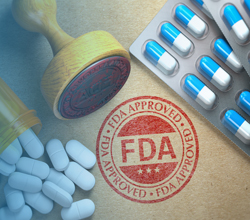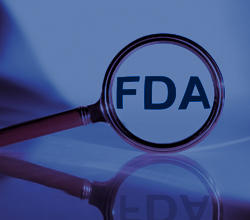
Investigational Review Board and FDA Warning Letters
 Kesley Tyson
Kesley Tyson
 60 Min
60 Min
Product Id: 704786
This training program will identify regulations and guidelines pertaining to institutional review boards. Attendees will learn about the historical events leading up to today’s regulatory framework in clinical research as well as discuss recent ethical issues regarding the IRB. The course will also explore the emergence of IRBs that are not academically affiliated.

Data Management in Clinical Research
 Kesley Tyson
Kesley Tyson
 60 Min
60 Min
Product Id: 704768
This training program will identify regulations and guidelines pertaining to data management in clinical research. Attendees will learn to translate the regulations and guidelines into practical application for each stage of the clinical trial: start-up, ongoing study management, and study closure. The program will also discuss the do’s/don’t for data management activities through real-life examples.

How to Build Effective Metrics for Vendor Oversight
 Beat Widler
Beat Widler
 60 Min
60 Min
Product Id: 704766
This training program will explain what the critical areas and elements of vendor oversight are and how you can set such a system up for yourself at your company.

Understanding and Applying Best Practice Standards When Reviewing Clinical Research Contracts
 Jennifer Holcomb
Jennifer Holcomb
 60 Min
60 Min
Product Id: 704337
This training program will take an in-depth look at various clinical research contracts designed for different purposes. Understanding each type including what is being protected and who is being protected is an important part of ensuring compliant administration and management of clinical research activities. Beyond the legal terms, this course will examine the standards for accredited organizations and best practices for ensuring the broadest protections for study participants.

Risk-Based Monitoring Beyond the RACT
 Beat Widler
Beat Widler
 60 Min
60 Min
Product Id: 704721
This training program will explain what the strengths and weaknesses of the RACT are and where it should be used with caution. It will also elaborate on what needs to be done to establish a comprehensive risk management approach to support risk-based quality management in clinical trials.

FDA Pre-Approval Inspection Readiness: Actionable Steps to Prepare for a BIMO Inspection
 Nicole Tesar
Nicole Tesar
 60 Min
60 Min
Product Id: 704640
This 60-minute training program is designed for those working in the field of clinical research either as a sponsor (pharmaceutical/biotech company) or a research site. The session will discuss key FDA inspection terminology, types of BIMO inspections, site inspection procedures, and sponsor inspection procedures. Attendees will understand when an inspection is likely to be scheduled and the current trends in findings.

Achieving Research Compliance Through Risk Assessment
 Sarah Fowler Dixon
Sarah Fowler Dixon
 60 Min
60 Min
Product Id: 704689
This training program will analyze the importance of research risks defined in 21 CFR 50 and 45 CFR 46. It will delve into how research risks affect IRB approval and review based on allowable actions in 21 CFR 50. The program will also discuss the need for indemnification language in consent forms based on risk levels.

Recruitment and Informed Consent: The Cornerstone of Ethical Clinical Research
 Jennifer Holcomb
Jennifer Holcomb
 60 Min
60 Min
Product Id: 704289
At the end of this training program, participants will be able to differentiate between consent and assent, identify when to use the long form and when to use the short form, describe the consent process using best practices.

FDA IDE: Investigational Device Exemption - What You Need To Know
 Kesley Tyson
Kesley Tyson
 60 Min
60 Min
Product Id: 704639
This program will identify regulations and guidelines pertaining to investigational device exemptions. Participants will learn to translate regulations and guidelines into practical application. The program will also discuss the dos/don’ts for conducting device trial activities through real-life examples.

CDISC Cloud Computing in the Pharmaceutical Industry: Paradigm Shift in Project Management, Analysis and Validation
 Sunil Gupta
Sunil Gupta
 75 Min
75 Min
Product Id: 704674
This training program will help you better manage projects and offer practical tools to understand data content and quality. Attendees will learn to apply validation methods to reduce time to validate clinical summary tables. Attendees will also learn to apply advanced SAS programming techniques to standardize and automate the validation process.

Best Practices in Being ‘On Call’ for FDA Submission Audits in the CDISC Programming Environment
 Sunil Gupta
Sunil Gupta
 75 Min
75 Min
Product Id: 704594
This training program will assist anyone directly or indirectly responsible for the creation, content or validation of SDTMs, ADaMs, tables, and data lists used to support research, drug or medical device efficacy and safety in a regulatory submission. It will help attendees in determining how well your company is positioned to defend your FDA submission.

Adverse Event Reporting: Site and Sponsor Reporting Requirements for Investigational Products
 Nicole Tesar
Nicole Tesar
 60 Min
60 Min
Product Id: 704534
This training program will help attendees understand what adverse events, serious adverse events and unanticipated problems are, and why reporting them is important to a study hypothesis and is key to keeping subjects safe while on a clinical trial. They will also learn the responsibilities of the sponsor, site/clinical investigator and regulatory agency in reporting adverse events.

Applying SAS Program Validation Techniques Using Proc Tabulate to QC Summary Tables
 Sunil Gupta
Sunil Gupta
 70 Min
70 Min
Product Id: 704539
This training program is intended for anyone directly or indirectly responsible for the creation, content or validation of SDTMs, ADaMs, tables, and data lists used to support research, drug or medical device efficacy and safety in a regulatory submission. Professionals in the pharmaceutical, biotechnology and medical device industries who want to be 21CFR Part 11 or Good Clinical Practices (GCP) compliant in relation to regulatory submission environment will benefit from this course.

Worksheets that Capture SOP Details and Are Compliant
 Edward O Connor
Edward O Connor
 60 Min
60 Min
Product Id: 704532
This training program will focus on understanding the drivers and benefit of using worksheets not only as a prompt for recording details but also in reducing efforts of the analysts and auditors in a GLP/GCP bioanalytical lab.

FDA Inspection Preparedness
 Susan Muhr Leister
Susan Muhr Leister
 60 Min
60 Min
Product Id: 704221
This training program will discuss key terms and responsibilities related to FDA inspections and the purpose of the BIMO inspection program. It will also review the general purpose and overall process of an FDA inspection and enhance your inspection preparation strategies.

FDA Inspection Lessons Learned: Lack of Trial Oversight
 Janet Ellen Holwell
Janet Ellen Holwell
 90 Min
90 Min
Product Id: 704263
This training program will critically assess the number of major and critical 2012 inspection findings related to trial oversight. Attendees will learn to identify regulatory requirements for appropriate delegation of duties and investigator oversight.

Writing Effective Clinical Evaluation Reports as Part of Post-Market Surveillance
 Cheryl Wagoner
Cheryl Wagoner
 60 Min
60 Min
Product Id: 703223
This medical device webinar will discuss strategies for meeting the Post Market Surveillance requirements as described in Annex X of the MDD (MDD 93/42/EEC, updated per the 2007/47/EEC M5 amendment, Annex 1: Essential Requirements), MEDDEV 2.7.1, Dec 2009 and ISO 14155.

Trial Master File (TMF): FDA Expectations from Sponsors and Sites
 Mukesh Kumar
Mukesh Kumar
 60 Min
60 Min
Product Id: 703078
This training will review the essential elements of a TMF for clinical trials. The activities of set-up, maintenance, and monitoring will be discussed using case studies to highlight common deficiencies and potential solutions.

Monitoring Plans: 10 Rules of Effective Writing of Monitoring Plans
 Laura Brown
Laura Brown
 60 Min
60 Min
Product Id: 703929
This training program will discuss latest requirements for monitoring plans, content and process requirements including FDA monitoring guidance and EU requirements. The webinar will help, sponsors, and CROs in the US, EU and internationally, understand how to effectively draft monitoring plans and comply with the latest FDA and EU inspection requirements for monitoring clinical trials.

Superiority, Non-inferiority, or Equivalence Trials: How, Why and When
 Rita Hanover
Rita Hanover
 60 Min
60 Min
Product Id: 702591
This webinar on clinical study design will explore the differences among superiority, Non-inferiority (NI), and equivalence trials, including development of the precise research questions necessary to making a decision about appropriate clinical designs.


























